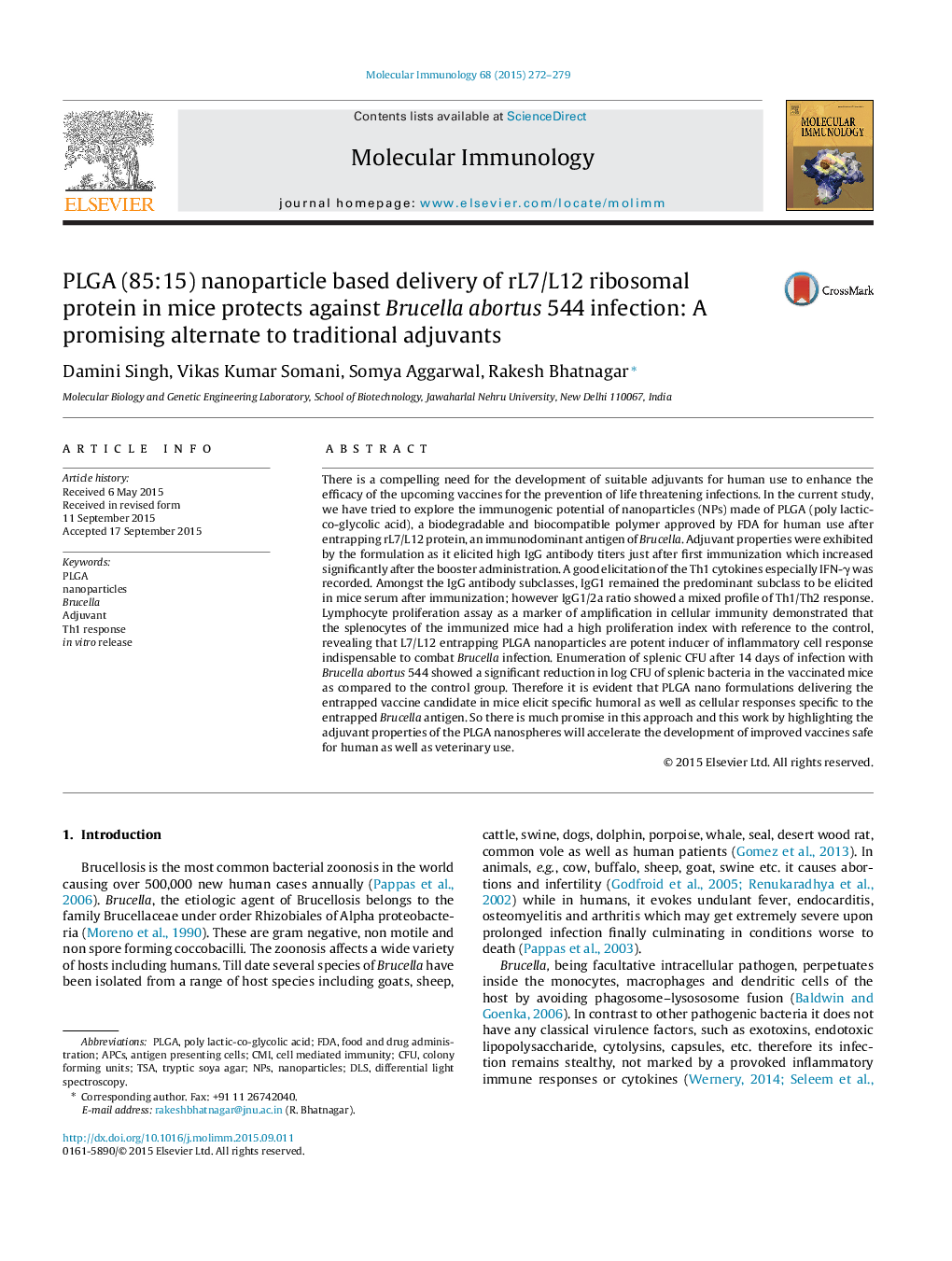| Article ID | Journal | Published Year | Pages | File Type |
|---|---|---|---|---|
| 5916436 | Molecular Immunology | 2015 | 8 Pages |
Abstract
There is a compelling need for the development of suitable adjuvants for human use to enhance the efficacy of the upcoming vaccines for the prevention of life threatening infections. In the current study, we have tried to explore the immunogenic potential of nanoparticles (NPs) made of PLGA (poly lactic-co-glycolic acid), a biodegradable and biocompatible polymer approved by FDA for human use after entrapping rL7/L12 protein, an immunodominant antigen of Brucella. Adjuvant properties were exhibited by the formulation as it elicited high IgG antibody titers just after first immunization which increased significantly after the booster administration. A good elicitation of the Th1 cytokines especially IFN-γ was recorded. Amongst the IgG antibody subclasses, IgG1 remained the predominant subclass to be elicited in mice serum after immunization; however IgG1/2a ratio showed a mixed profile of Th1/Th2 response. Lymphocyte proliferation assay as a marker of amplification in cellular immunity demonstrated that the splenocytes of the immunized mice had a high proliferation index with reference to the control, revealing that L7/L12 entrapping PLGA nanoparticles are potent inducer of inflammatory cell response indispensable to combat Brucella infection. Enumeration of splenic CFU after 14 days of infection with Brucella abortus 544 showed a significant reduction in log CFU of splenic bacteria in the vaccinated mice as compared to the control group. Therefore it is evident that PLGA nano formulations delivering the entrapped vaccine candidate in mice elicit specific humoral as well as cellular responses specific to the entrapped Brucella antigen. So there is much promise in this approach and this work by highlighting the adjuvant properties of the PLGA nanospheres will accelerate the development of improved vaccines safe for human as well as veterinary use.
Keywords
Related Topics
Life Sciences
Biochemistry, Genetics and Molecular Biology
Molecular Biology
Authors
Damini Singh, Vikas Kumar Somani, Somya Aggarwal, Rakesh Bhatnagar,
